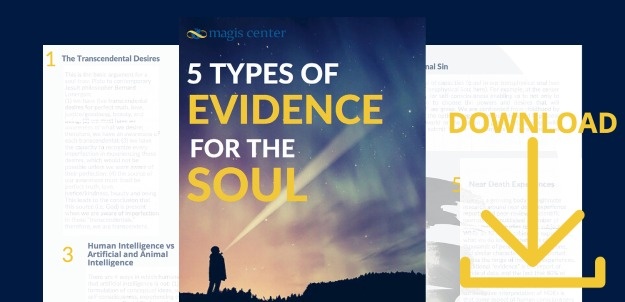Are computers the same as we are? In his article, “Evidence of the Transcendent Soul,” Fr. Robert Spitzer says they are not and explains four major differences between human and artificial intelligence:
- The five transcendental desires, which manifest our awareness of perfect truth, love, justice/goodness, beauty, and hope
- The formulation of conceptual ideas
- Self-consciousness, the experience of experiencing, presence to self, and the experience of inwardness
- Transalgorithmic mathematical thinking
Each will be discussed in turn.
The 5 Transcendental Desires
The presence of the five transcendental desires within us manifests our awareness of perfect truth, love, justice/goodness, beauty, and home (for an overview on this, read our article “The 5 Transcendentals). The source of these five kinds of transcendental awareness is God (perfect truth, perfect love, perfect justice/goodness, perfect beauty, and perfect being themselves).
Since we do not have the capacity to give artificial intelligence these five kinds of transcendental awareness and desire (because only God can do this), we can assume that computers will never be enlightened in this way.
The Capacity to Formulate Conceptual Ideas
There’s a second difference between human and artificial intelligence—the capacity to formulate conceptual ideas. This idea is explained thoroughly in our article, “Human vs. Animal Intelligence Through the Lens of Linguistic Abilities,” where we discuss the need for heuristic notions in formulating conceptual ideas (abstract ideas which are interrelational and can be used as predicates and objects). There we show that animals do not have conceptual ideas (because they cannot pass Chomsky’s syntax test), showing that they do not have the heuristic notions needed to ask questions and formulate these conceptual ideas.
It is unlikely that artificial intelligence will ever have the capacity to formulate conceptual ideas because we will not be able to give heuristic notions to them. Why? If Bernard Lonergan is correct in asserting that the origin of all heuristic notions is what he calls “the notion of being” (the notion of complete intelligibility), and the origin of that notion must be “being through itself” or “complete intelligibility itself,” then God alone (who is the only reality that exists through itself and is an unrestricted act of thinking) can cause this notion. Since this notion is the origin of all other heuristic notions, only God can be their ultimate source.
Self-consciousness
There is a third difference between artificial and human intelligence: self-consciousness. What philosopher and cognitive scientist David Chalmers calls “the hard problem of consciousness” brings this to the fore. He noticed that there are various dimensions to the inwardness of subjective experience that cannot be replicated and therefore cannot be produced by physical processes alone. Phenomena such as delight, appreciation, enjoyment, awe, and wonder, manifest not only an experience of the outward world but an experience of inwardness—an experience of experiencing.
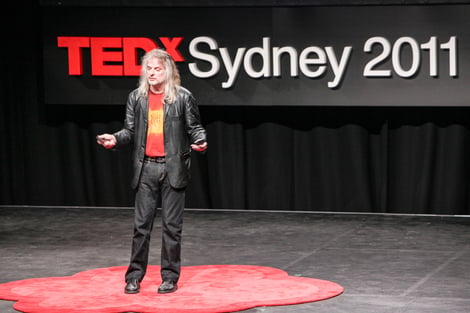
David Chalmers at Tedx Sydney / David Clare, First Light Photography
Chalmers works backward from what he calls “the easy problems of consciousness” (i.e., any phenomenon that an aggregation of physical processes can explain) to the “hard problem of consciousness” (i.e., any phenomenon such as the above experiences of delight, appreciation, and awe which are not able to be explained by an aggregation of physical processes)
The problem with describing inner experiences by means of physical processes is that physical processes have no “inner sense”—that is, no “presence to self”—“no awareness of self.” Physical realities have no “inwardness”—no “interior depth”—but only “outwardness,” which can interact or be aggregated with other physical (“outward”) realities.
Philosopher Thomas Nagel looks at it the other way around: from the vantage point of physical processes. He notes that physical processes are “objective”—they can be shared in a consistent way with anyone who has the means to observe them. However, subjective “experiences”—“inner appreciation and enjoyment”—cannot be shared with anyone. They are un-shareable because the “inwardness” of subjective experience cannot be objectified (“made outward.”)
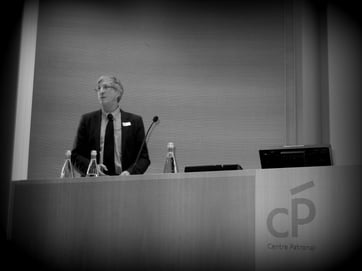
Thomas Nagel / REZ0NANCE
If Chalmers and Nagel are correct then self-consciousness, “experiencing of experiencing,” “experiencing of inwardness,” and the experience of owning feelings and states of appreciation, delight, awe, etc. will not be replicable by artificial intelligence—which by definition can be reduced to physical and outward processes.
Transalgorithmic Mathematical Thinking
There is a fourth significant difference between artificial and human intelligence manifested in Gödel’s theorem. The famous German mathematician Kurt Gödel first formulated the proof of the non-rule-based, non-algorithmic, transcendent nature of human intelligence in 1931. In brief, Gödel showed that there will always be unprovable propositions within any set of axiomatic statements in arithmetic. Human beings are able not only to show that consistent, unprovable statements exist but also to prove that they are consistent by making recourse to axioms beyond those used to generate these statements. This reveals that human thinking is not based on a set of prescribed axioms, rules, or programs, and is, by nature, beyond any program.
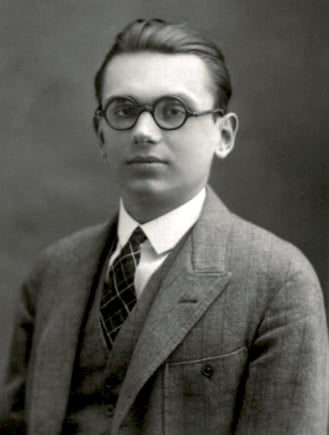 Portrait of Kurt Gödel, one of the most significant logicians of the 20th century, as a student in Vienna
Portrait of Kurt Gödel, one of the most significant logicians of the 20th century, as a student in Vienna
Gödel’s proof shows that human thinking is not only always beyond axioms, rules, and programs (to which artificial intelligence is limited), but also capable of genuinely originative creativity (that is, capable of thinking without deriving from or making recourse to any prior axioms, rules, or programs).
A Note on Mathematical Intelligibility
How is this possible? We must have some tacit awareness of mathematical intelligibility as a whole—a sense of how all the parts relate to each other as a whole. With this remarkable general sense of mathematical intelligibility, we can develop mathematics beyond the total implications of all past algorithms—we can be genuinely creative. This is precisely what has occurred throughout the history of mathematics—from the time of Euclid, Pythagoras, and Archimedes to the present.
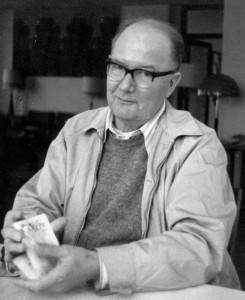 Bernard Lonergan / BCLonergan, CC BY-SA 4.0, via Wikimedia Commons
Bernard Lonergan / BCLonergan, CC BY-SA 4.0, via Wikimedia Commons
Where did our general notion of mathematical intelligibility come from? It does not come from the world of concrete space-time particularity (because the general notion of mathematical intelligibility is beyond all space-time particularity). Similarly, it does not come from physical processes in our brain (because these processes, too, are restricted to space-time particularity). It seems that we have only one option left— it must be an integral part of our innate transcendental horizon of complete intelligibility which allows us to have a tacit awareness of perfect truth.
This transcendental horizon of complete intelligibility presents us with a tacit awareness of everything about everything—and the general ways in which everything can be related to everything. It is the source of all heuristic notions—what Lonergan calls the “notion of being.” He describes it as follows:
“[T]he notion of being penetrates all cognitional contents. It is the supreme heuristic notion. Prior to every content, it is the notion of the to-be-known through that content. As each content emerges, the ‘to-be-known through that content’ passes without residue into the ‘known through that content.’ Some blank in universal anticipation is filled in, not merely to end that element of anticipation, but also to make the filler a part of the anticipated. Hence, prior to all answers, the notion of being is the notion of the totality to be known through all answers.”
—Bernard Lonergan, Insight
All forms of artificial intelligence are based on prescribed rules, algorithms, axioms, and programs. If Lonergan’s implicit solution to Gödel’s Theorem is correct, then no artificial (machine) intelligence will ever be able to replicate human questioning and creativity—let alone our quest for complete and unrestricted intelligibility. Artificial intelligence has no consciousness of a horizon of greater intelligibility—let alone a horizon of complete and unrestricted intelligibility, and human beings will not be able to create such a horizon for it because any such horizon is beyond the domain of individuation and space-time particularity, which means it is beyond the domain of macroscopic and quantum physics.
Furthermore, human beings will never be capable of creating a horizon of complete and unrestricted intelligibility because such a horizon can only be created by “complete and unrestricted intelligibility Itself” (an unrestricted act of thinking—God). We will never be able to create artificial replicas of our own free and creative inquiry because we are merely restricted beneficiaries of a capacity given to us by truly unrestricted intelligence.


